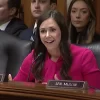By Brandon Moseley
Alabama Political Reporter
In 2012 charter schools legislation crashed and burned in the Alabama legislature. A modest charter school bill was weakened in the Alabama House of Representatives and then got completely gutted by a reluctant Senate. The onerous provisions of the Senate version were so unworkable the House never bothered to take it up. The charter school bill failure was one of the few legislative disappointments for the Republican leadership during the first GOP controlled quadrennium in living memory.
In 2014 Alabama voters rewarded the GOP super majorities in both Houses with re-enforcements. 2015 has proven to be an entirely different story for charter schools and the legislative tag team of Mike Hubbard and Del Marsh. A much more ambitious charter school bill has sailed through the legislature crushing its hopelessly outmatched token opposition.
Senate Bill 45 was passed on Wednesday, March 18 by the Alabama House of Representatives by a vote of 58 to 41 after four hours of debate. The Alabama Senate immediately took up the bill with the changes the House made and voted 24 to 11 to concur. Now the School Choice and Student Opportunity Act goes to Governor Robert Bentley (R) for his consideration.
State Representative Mack Butler (R from Rainbow City) said on Facebook, “After Senate action tonight The Charter School Bill is on the way to the Governor for his signature! This is Historic Legislation that I believe will transform public education![]() in a very positive way!”
in a very positive way!”
Speaker of the House Mike Hubbard (R from Auburn) said in a Facebook statement, “The Alabama House Republican Caucus continued our efforts tonight to improve and innovate public education![]() in the state of Alabama with the passage of the School Choice and Student Opportunity Act. The creation of public charter schools will expand our educational options will give more Alabama families the chance at a better education for their children.”
in the state of Alabama with the passage of the School Choice and Student Opportunity Act. The creation of public charter schools will expand our educational options will give more Alabama families the chance at a better education for their children.”
Senate Majority Leader Greg Reed (R from Jasper) applauded the passage of the Schools Choice and Student Opportunity Act in a written statement: “In the first few weeks of the regular session we have addressed specific agenda items put forward by Members of the Alabama Senate including legislation related to charter schools. We will continue![]() to focus on legislation that is part of the expansive 2015 Alabama Senate legislative agenda.”
to focus on legislation that is part of the expansive 2015 Alabama Senate legislative agenda.”
The School Choice and Student Opportunity Act was personally sponsored by Senate President Pro Tem Del Marsh (R from Anniston) and was sponsored in the Alabama House of Representatives by State Representative Terri Collins (R from Decatur).
Rep. Collins said in a statement, “Every child in Alabama deserves a high quality education![]() , and the School Choice and Student Opportunity Act empowers parents with another choice for their child’s education. It is time for Alabama to join the other 42 states that provide this innovative option to educators, parents, and students.
, and the School Choice and Student Opportunity Act empowers parents with another choice for their child’s education. It is time for Alabama to join the other 42 states that provide this innovative option to educators, parents, and students.
The bill is part of the House Republican Caucus’s “Alabama First Agenda” and proponents claim that the act is designed to empower parents and expand school choice options through the creation of public charter schools in Alabama. The bill was also a key plank of Senate Republicans “Paving a Path to the Future” 2015 legislative agenda.
Rep. Collins is the chair of the House Education Policy Committee. Chair Collins said that Alabama benefited by learning from the experiences of the 42 other states who have passed some version of charter schools already. According to Collins, the National Association of Charter School Authorizers stated that SB45 is “one of the most accountability![]() focused charter school laws in the country.”
focused charter school laws in the country.”
Senate President Marsh said, “I want to thank all those who were involved in the process of passing this legislation. I am glad we were able to bring so many to the table to give Alabama parents the best educational options possible.”
Alabama Democrats continue![]() to oppose the passage of the charter schools bill.
to oppose the passage of the charter schools bill.
Senator Quinton T. Ross Jr. (D from Montgomery) said “I fundamentally and philosophically disagree with the passage of charter school legislation in the state of Alabama. I truly believe it is a setback for the schoolchildren as well as the citizens of the state.”
The Chairman of the House Democratic Caucus, Rep. Darrio Melton (D from Selma) said, “This shows that members of the Alabama House are not ready to tackle the tough issues facing our state. We must show leadership and quit trying to add problems into a strained system. We need to fully fund the education system we already have: ensure every child has access to quality pre-kindergarten, updated textbooks, first-class teachers and clean facilities in which to learn. Not until we get our house in order can we begin to add charter schools into the system.”
House Minority Leader Craig Ford (D from Gadsden) said, “Charter schools have been a legislative priority for the Republican leadership, so it is no surprise that this bill was passed. But just like with the budget crisis, legislative leaders are avoiding the problem; they are not actually helping or fixing failing schools. The experience in other states has proven that charter schools are a scam: they have bilked the taxpayers out of at least $130 million dollars, and failed to produce better academic results. The charter school bill we passed today does not solve these problems. For the sake of our children and the taxpayers, I hope Gov. Bentley will veto this terrible bill.”
Public charter schools are open to any Alabama student, and their administrators have autonomy over key decisions like finance, personnel, schedule, and curriculum. Only ten new public charter schools would be allowed a year for the first five years; but school boards will be allowed to convert an unlimited number of existing public schools to charters.
The local school board can refuse to bring a new charter to their system; but the bill empowers the Alabama Board of Education![]() to create the Alabama Public Charter Commission which would hear appeals of charter applications denied by their local school board.
to create the Alabama Public Charter Commission which would hear appeals of charter applications denied by their local school board.
If parents don’t like their neighborhood school they will be able to apply to a charter school in another neighborhood, town, or county. In exchange for unprecedented levels of freedom from existing state school regulations, a charter school that fails to meet the expectations set in their charter can be closed.
Rep. Collins said, “We must continue to be innovative and expand our educational options until every single child in Alabama is graduating from our schools with the skills they need for additional education or a career. While there is no silver bullet![]() to fix our educational issues, I believe that the School Choice and Student Opportunity Act will give more Alabama families the chance at a better education for their children.”
to fix our educational issues, I believe that the School Choice and Student Opportunity Act will give more Alabama families the chance at a better education for their children.”
Senator Ross said, “Every citizen needs to be aware of how their public dollars will be spent under the guise of education funding. I pray that the governor will think long and hard about the public schoolchildren and the taxpayers of the state of Alabama before signing this legislation.”
Senator Marsh said. “Throughout this whole process, we worked closely with the Executive and the Legislative branches and I look forward to Governor Bentley signing the School Choice and Student Opportunity Act.”
While charter schools are new to Alabama, nationally 3,285,569 students across the country attend charter schools.



















































